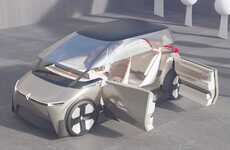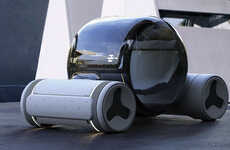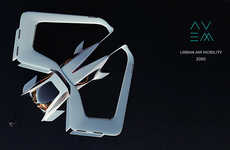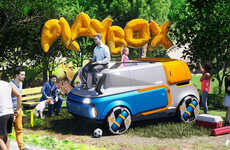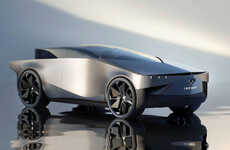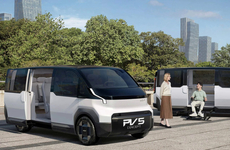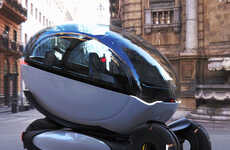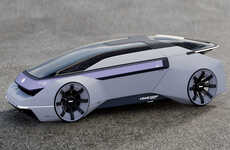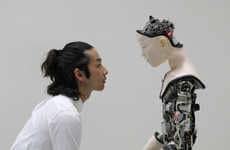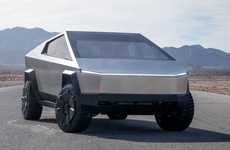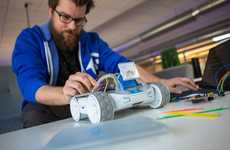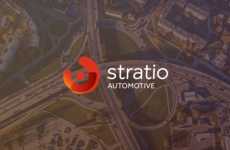
'Project Cubiq' Imagines the Face of Working and Living in 2035
Michael Hemsworth — April 27, 2019 — Autos
References: tuvie
How consumers live, work and get around is positioned to change dramatically over the next few years, which is what 'Project Cubiq' aims to address by offering a new concept of what it might look like.
Designed by Charles Keusters, the project imagines the year 2035 and puts a focus on driverless transportation solutions as a catalyst for widespread culture change. Instead of being used to get consumers to and from work, the vehicles would act as mobile offices to let consumers stay connected and explore their passions.
The 'Project Cubiq' imagines a society that is focused on zero emissions, while international hyper loops and supersonic jets allow consumers to freely travel. The widespread adoption of automation in this future world would see many jobs become obsolete, but this is positioned as an evolution that would let consumers explore their curiosities and passions more wholly.
Designed by Charles Keusters, the project imagines the year 2035 and puts a focus on driverless transportation solutions as a catalyst for widespread culture change. Instead of being used to get consumers to and from work, the vehicles would act as mobile offices to let consumers stay connected and explore their passions.
The 'Project Cubiq' imagines a society that is focused on zero emissions, while international hyper loops and supersonic jets allow consumers to freely travel. The widespread adoption of automation in this future world would see many jobs become obsolete, but this is positioned as an evolution that would let consumers explore their curiosities and passions more wholly.
Trend Themes
1. Driverless Transportation Solutions - The advancement of driverless transportation solutions presents opportunities for creating mobile offices and redefining the way people work and travel in the future.
2. Zero Emissions Society - The shift towards a zero emissions society creates opportunities for innovative sustainable technologies and practices that can reduce the environmental impact of transportation.
3. Automation and Job Evolution - The widespread adoption of automation in various industries can lead to job evolution, allowing individuals to pursue their interests and hobbies more fully.
Industry Implications
1. Automotive - The automotive industry can explore opportunities in developing and commercializing driverless transportation solutions that offer mobile office capabilities.
2. Sustainable Technology - The sustainable technology industry can innovate and provide eco-friendly solutions to support the transition towards a zero emissions society.
3. Education and Skills Development - The education and skills development industry can adapt to the changing job landscape and offer programs that equip individuals with the necessary skills to thrive in an automated world.
5.6
Score
Popularity
Activity
Freshness

